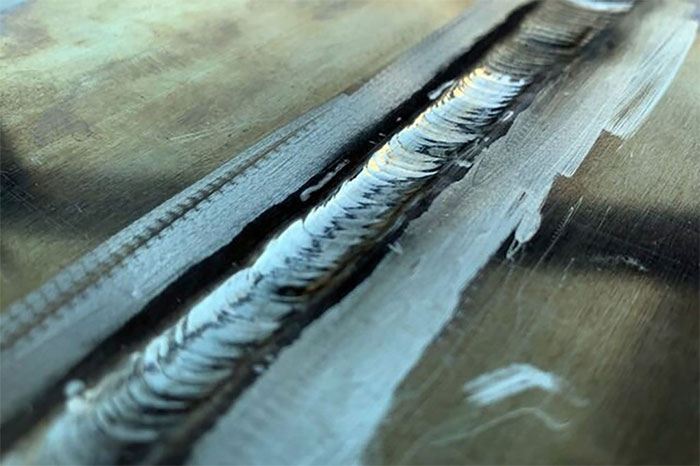Aluminum 7075 can be welded, the future of cars and aircraft will be more durable and fuel efficient
From the 40s of the last century, people have created an aluminum alloy (called AA 7075) with a hardness equivalent to steel but weighing only 1/3, it promises to be used in industry. car industry. However, this alloy can not be soldered, which is a common technique to make the chassis and engine components. Until recently, with improvements in technology, AA 7075 aluminum alloy could be welded thanks to an interesting solution from the University of California.
The aluminum alloy is difficult to weld because when heated, its molecular structure creates an uneven flow of elements including aluminum, zinc, magnesium and copper, which causes cracks to form along. solder. Engineers at the University of California, Los Angeles engineering school have devised ways to insert titanium carbide nanoparticles - microscopic in size, one billionth of a meter into a welding rod.

AA 7075 aluminum alloy can help vehicles save fuel as well as achieve greater energy efficiency with electric vehicles.
In this way, the researchers created welds with tensile strength up to 392 megaPascal (MPa). Imagine an aluminum alloy such as AA 6061 widely used in aircraft and cars with a tensile strength of only 186 MPa at the weld. In addition, welds after heat treatment will be able to increase tensile strength up to 551 MPa - this strength is comparable to steel.
Hard and light, the AA 7075 aluminum alloy can help vehicles save fuel as well as achieve greater energy efficiency with electric vehicles. This type of aluminum is also commonly used in the aircraft industry, where the body is made because the material is often paired with screws or rivets instead of welded joints. In addition, the aluminum alloy AA 7075 is also used in products that do not need to be paired, such as phone frames or carabiner hooks for mountaineers.
However, it is difficult to weld, especially welding technology in the car industry, which makes it not widely used."This technique is just a simple step but it allows high hardness aluminum alloys to be more widely used in mass-produced products such as cars or bicycles, they have regular parts. companies can reuse existing processes and equipment to bring this super hard aluminum alloy into their production lines, and their products will be lighter, more energy efficient. while being very durable, " said Xiaochun Li, a professor of production and an evaluator of the research at UCLA.
The team at UCLA is currently working with a bike maker to develop the first prototype bike with a frame made of this aluminum alloy. In addition, the method of dipping titanium particles into a welding rod will be applicable to welding other difficult-to-weld materials, such as metals and metal alloys.
- Launched more fuel-efficient cars than cars
- The least fuel-efficient cars in the world
- Smart cars 'prompt' fuel-efficient driving
- Future aircraft consume very little fuel
- Students who make cars can run nearly 3,000 km with a liter of gasoline
- Coffee bodies will make fuel run cars
- V-shaped planes are much more fuel-efficient, but fear that no one dares to try for this reason
- The most fuel-efficient sports car in the world
- 3D Bio Cars for the future
- Vietnam 5th Asian champion on fuel-efficient vehicles
- Highly durable ceramic coating, resistant to temperatures of 2000-3000 degrees Celsius
- Road-driven cars: the world's most efficient method of hydrogen production
 The US company is about to build a supersonic passenger plane of 6,000km / h
The US company is about to build a supersonic passenger plane of 6,000km / h Japan develops avatar robot as in fiction film
Japan develops avatar robot as in fiction film Australia tested the world's first mango picking robot
Australia tested the world's first mango picking robot America develops technology to separate water from animal waste
America develops technology to separate water from animal waste China announced a breakthrough invention: Applying technology to create 'unprecedentedly durable' materials
China announced a breakthrough invention: Applying technology to create 'unprecedentedly durable' materials  New aluminum alloy fabrication withstands 400 degrees Celsius
New aluminum alloy fabrication withstands 400 degrees Celsius  Extreme virtual experiment: Put one drop of this solution on the aluminum plate,
Extreme virtual experiment: Put one drop of this solution on the aluminum plate,  What happens when skin is exposed to molten metal?
What happens when skin is exposed to molten metal?  The process of producing refreshing cans
The process of producing refreshing cans  Generate electricity from coins
Generate electricity from coins 